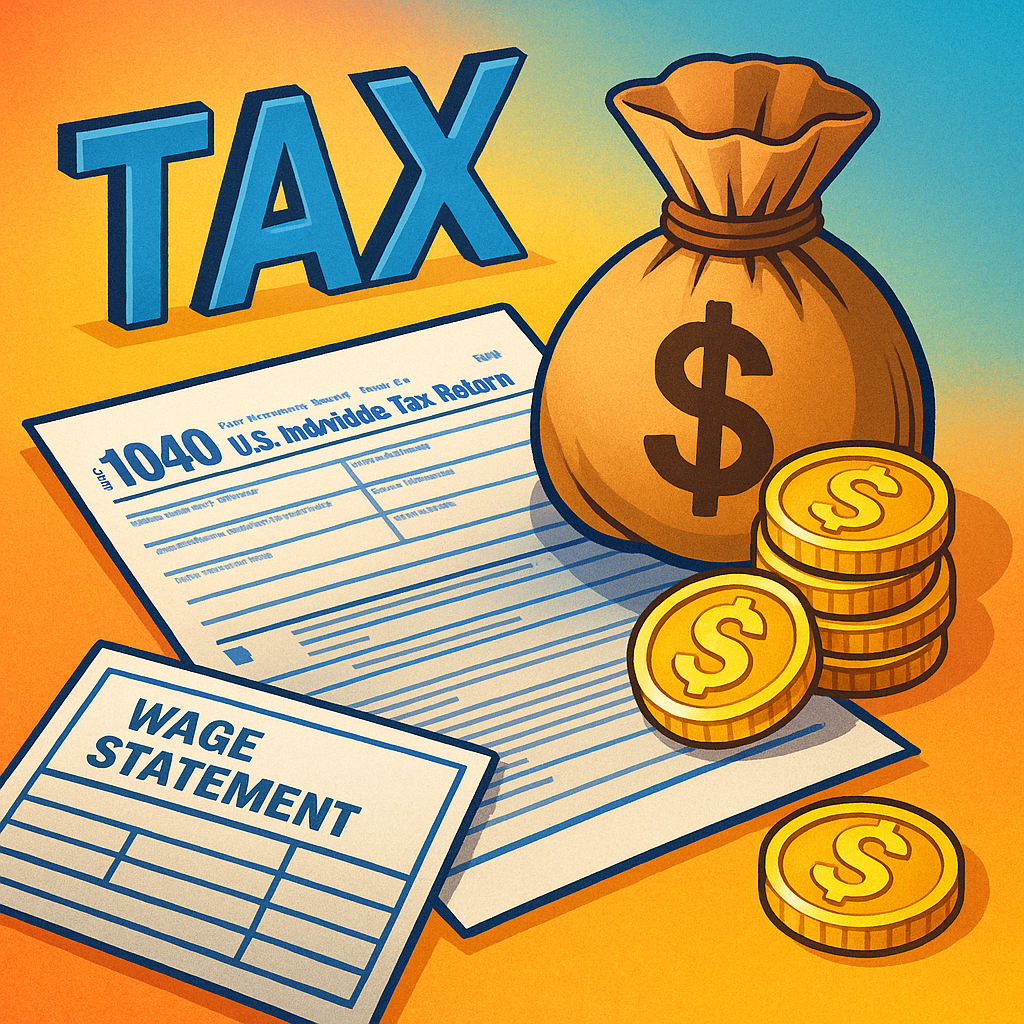Why Everyone Thinks They’re Paying Too Much (and Everyone’s Kind of Right)
If taxes are the price we pay for civilization, ours must include the streaming surcharge.
Somewhere between your barista’s existential rant and the billionaire’s yacht-party selfie, there lies a truth: everyone feels overtaxed. Yes—even the ultra-rich. And yes—even the people whose tax burden is so low it’s practically show-me-the-receipt territory.
Let’s dive into the numbers, the contradictions, and the weird economics of feeling “taxed,” even when you might not be doing as much of the taxing as you think.
The Tax Reality
How much are we actually paying?
According to the Tax Foundation, for tax year 2021 the average federal income tax rate across all filers was 14.9%. The top 1 % of taxpayers reported an average rate of 25.9%, whereas the bottom 50 % averaged only 3.3%.
In tax year 2022, the average rate dropped slightly to 14.5%, and the top 1% average rate was about 23.1%, compared with about 3.7% for the bottom half.
Who’s paying what share?
The top 1% of earners paid roughly 40.4% of all federal individual income taxes in 2022.
The bottom half (by income) collectively paid around 3% of federal income taxes in recent years.
The U.S. federal tax bracket system for 2024-25 includes marginal rates at 10 %, 12 %, 22 %, 24 %, 32 %, 35 % and 37%.
And yet…
Even with data showing that the top earners carry a large share of the burden, many people—especially those in middle income brackets—feel they’re getting squeezed. Meanwhile, the notion that “rich people don’t pay taxes” persists (even as they pay a lot in dollars, though not always in percentage of wealth).
Why Nobody Feels Good About Their Taxes
A. For the barista / young professional crowd:
You’ve got a decent job, maybe even benefits, but you still feel like every time there’s a “tax increase” you’re looking at your take-home and wondering, “How is this fair?”
You might fall into a bracket where marginal rates are moderate, but between payroll tax, state tax, city tax, and little fees everywhere, the “effective tax rate” (what you actually pay) feels much higher than the headline number.
Also, you see billionaires talking about ‘carried interest’, ‘tax‐loss harvesting’, or ‘deductions’ you can’t touch—and that stings.
B. For the ultra-rich / top 1%:
Yes, they pay tens of billions of dollars in U.S. income tax. Yes, they pay a bigger share of federal individual income taxes than many.
But when you compare income tax paid versus net worth, assets, unrealized gains, global holdings, loopholes—they may feel the system is almost built to let them keep more than it seems. (And many believe that.)
It’s also worth noting that average rate data may not capture every nuance of wealth taxation (estate tax, capital gains, corporate taxes etc.).
The Paradox Unpacked
At a systemic level: The tax system is progressive in many ways — higher incomes generally pay higher effective rates and a large share of federal tax revenue.
At an individual level: People across the spectrum feel like they’re under-taxed, overtaxed, unfairly taxed, or unfairly spared—depending on perspective.
Hence the paradox: Everyone thinks they’re paying too much (or could be paying less), and everyone has a complaint—but the data suggest a more complex picture.
Why the Streaming Surcharge Makes Sense
If civilization is a shared service, taxes are the fee. But let’s be honest: these days, that fee should include things like “lifetime Netflix subscription for civilization” or “Spotify playlist of civility while waiting for politics to resolve itself.”
Because we live in a world where:
Attention is finite.
Tax codes are infinite.
The feelings around both are irrationally inflated.
So you wonder: “Am I paying for society’s infrastructure, or am I paying for society’s streaming queue?”
What Could Change (If We’re Brave Enough)
Simplify the base. Fewer deductions. Fewer special cases. Make the tax system more transparent so people can see what they pay.
Broaden the base. If more income types (capital gains, unrealized gains, global earnings) are taxed with similar discipline, the burden becomes less glaringly “just wages.”
Improve communication. People don’t really know how much others pay—so numbers matter. Misconceptions abound.
Make fairness visible. It’s not just about rate, it’s about perception. If people feel it’s unfair, the system’s legitimacy suffers—even if the math says otherwise.
In Other Words:
Taxes aren’t a zero-sum blame game. They’re a shared investment in civilization’s buffet. Yes, it can feel like the buffet includes an extra side of streaming—and maybe a sprinkle of crypto. But the main course still needs us all to chip in.
So the next time you glance at your paycheck, sigh at the code “FED – 1040,” and mutter under your breath… just remember: you’re not alone. The barista might be grumbling. The billionaire might be smiling behind a complicated tax return. And you’re somewhere in between—paying your fee for civilization, streaming queuing included.



